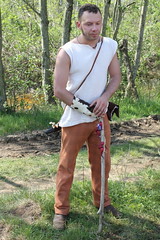Alchemy And The Occult
Alchemy is derived from the Arabic word al-Kimia both philosophy and practice ancient focused on trying to change base metals into gold, exploring the preparation of the “elixir of longevity”, and the ultimate wisdom, including the improvement of the alchemist, as well as the adoption of several substances described as possessing unusual properties. The practical aspect of alchemy generated the foundations of modern inorganic chemistry, namely concerning procedures, equipment and identification and use of many modern materials.
Alchemy was practiced in ancient Egypt, Mesopotamia (modern Iraq), India (India today), Persia (now Iran), China, Japan, Korea, the classical Greco-Roman world, the medieval Islamic world, and then to medieval Europe from the 20 th century, in complex network of schools and philosophical systems spanning at least 2500 years.
Alchemy as a philosophical and spiritual discipline
Alchemy was known as spagyric art after Greek words meaning to select and combine in the 16 century, the word is likely to be coined by Paracelsus. Compare this with one of the sayings of Alchemy in Latin: Solve etc. coagulation – a separate and unite the efforts (or “dissolve and coagulate.”)
The most famous goal of the alchemists were turning base metals into gold (the so-called chrysopoeia) or silver (less well known is plant alchemy, or “spagyric”), creation of a “panacea” or the elixir of life, a means that was supposed to be to treat all diseases and prolong life indefinitely, and the discovery of a universal solvent. Although these were not only used for this discipline, they are the most documented and well known. Some tight schools argue that turning lead into gold similar
Pages: 1 2
